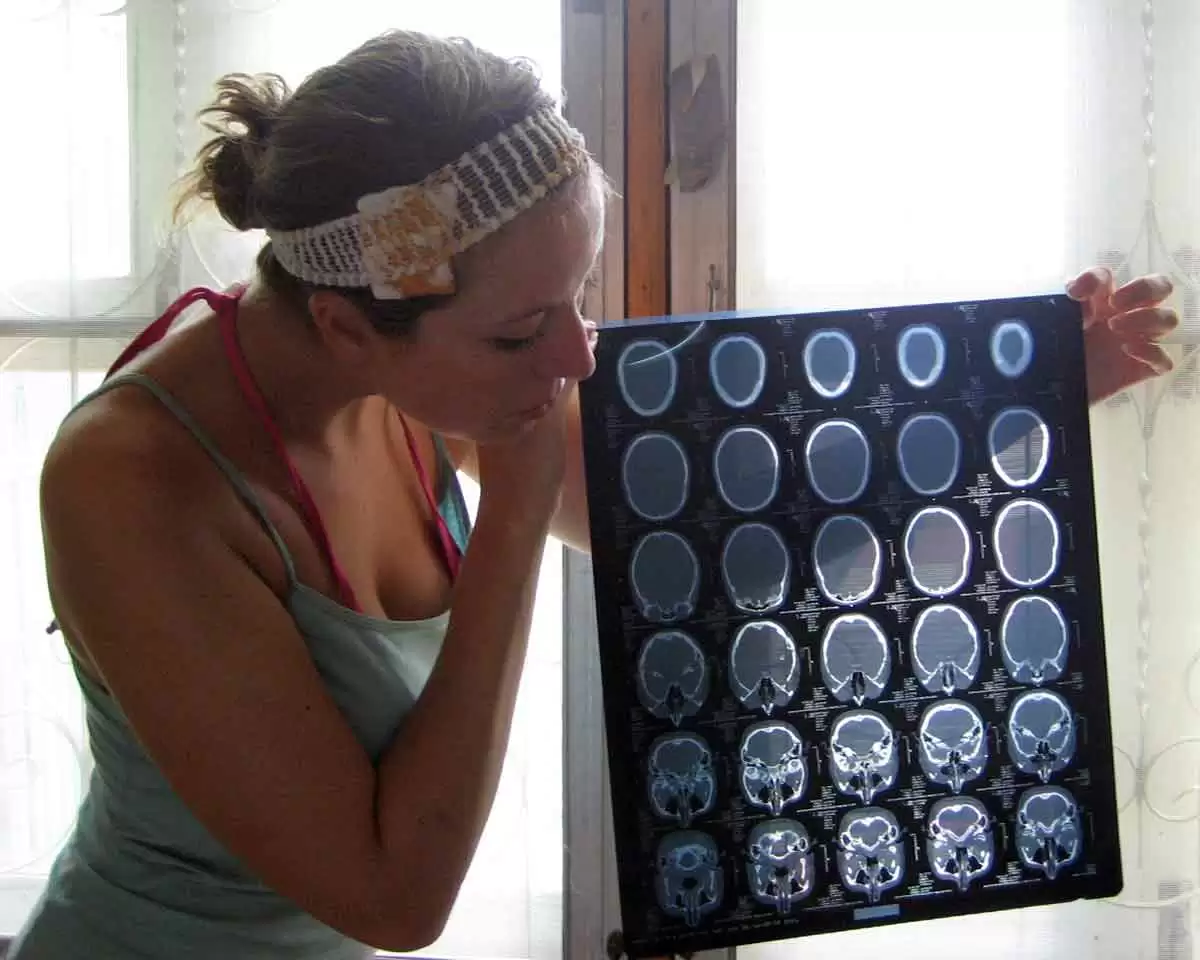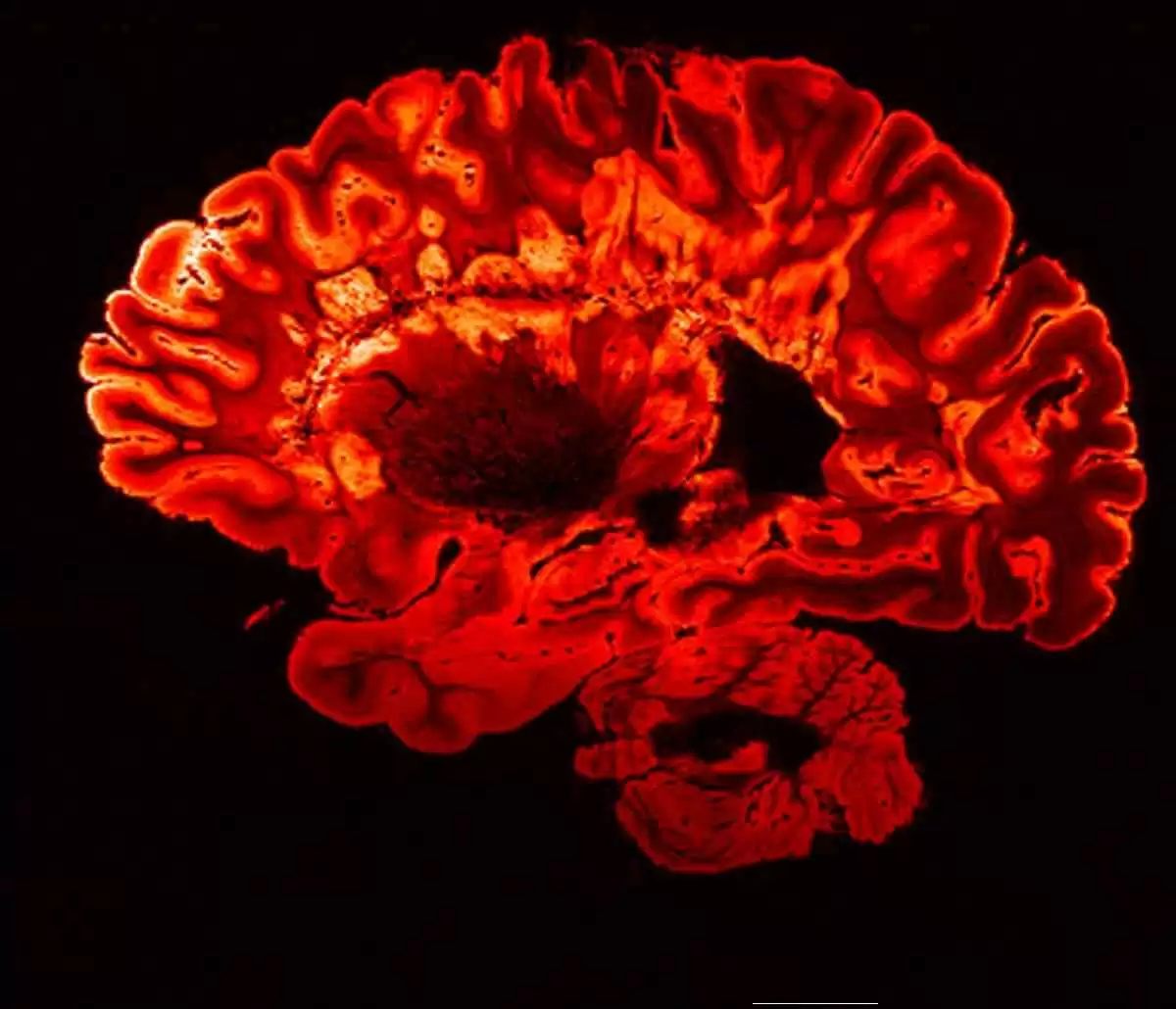
Celiac.com 03/27/2023 - Celiac disease, a chronic inflammatory disorder of the intestines, affects about 1% of the world's population. Celiac disease causes diarrhea, abdominal discomfort, bloating, flatulence, and, in rare cases, constipation in the digestive tract. Since the identification of gluten as the disease-causing antigen, celiac patients have been treated with a gluten-free diet, which usually eliminates symptoms and restores gut health, but which also has limitations for some patients. Celiac disease is also associated with numerous neurological and psychological manifestations. A recent article details findings from the most recent study, but here we try to provide more comprehensive information.
Neurological Manifestations of Celiac Disease
The neurological manifestations of celiac disease are varied and can include psychiatric and neurological symptoms such as ataxia, peripheral neuropathy, seizures, headaches, cognitive impairment, and myoclonus. The specific mechanisms of celiac disease's neurological effects are still being researched, but they may involve gluten-mediated pathogenesis that can lead to antibody cross-reactions, immune-complex deposition, direct neurotoxicity, or extreme vitamin or food deficiencies. A gluten-free diet can alleviate most celiac disease symptoms, except for cortical myoclonus and dementia, which may require immunosuppressive therapy. However, there is currently no consensus on whether serological or neurophysiological data can accurately predict or monitor celiac disease-related neurological involvement.
Celiac.com Sponsor (A12):
Treatment for gluten-related neurological symptoms typically involves embarking on a strict gluten-free diet as soon as possible, which can have a positive therapeutic effect for most cases. Symptomatic management may also be required. Immunosuppression is only used in cases where a gluten-free diet alone has not been beneficial or for patients with refractory celiac disease.
Peripheral Neuropathy and Gluten Ataxia
Peripheral neuropathy and gluten ataxia are common in celiac patients, with up to 39% of patients experiencing gluten neuropathy. Gluten-free diets have been shown to improve neuropathy and ataxia.
Gluten ataxia is an uncommon immune-mediated neurological disease that can be difficult to identify. The early signs of ataxia may be subtle, but worsen if left untreated. Patients with gluten ataxia may experience structural alterations in different parts of the brain, including the cerebellum and thalamus, and have larger lateral ventricles.
Higher Epilepsy Risk
Celiac disease increases the risk of epilepsy, especially in children and adolescents. The presence of villus atrophy on follow-up biopsies may reduce the risk of epilepsy but does not affect hospitalizations for epilepsy emergencies. Unexplained epilepsy should prompt celiac disease screening since early identification and therapy may increase the effectiveness of anti-epileptic drugs.
Celiac patients also have a higher prevalence of migraines and tension headaches. The underlying relationship between celiac disease and headache involvement is still unknown, but adherence to a gluten-free diet can alleviate neurological symptoms.
Celiac disease can also cause cognitive impairment, including memory loss, clouded thinking, personality shifts, and an inability to calculate. Nutrient deficiencies, systemic inflammation, and low brain serotonin levels have been suggested as possible reasons for this. Celiac disease has also been associated with Alzheimer's and vascular and fronto-temporal dementias. Neuropsychological assessments should be conducted in celiac disease patients to assess cognitive function.
Psychiatric Manifestations of Celiac Disease
Celiac disease is associated with depression, anxiety, eating disorders, autism spectrum disorder, attention deficit hyperactivity disorder (ADHD), bipolar disorder, schizophrenia, and mood disorders. The relationship between celiac disease and these psychiatric disorders is not well-known or established. Particular biological aspects as well as the effect of a gluten-free diet require additional research.
Depression and Anxiety
Celiac disease has been associated with various psychiatric disorders such as depression, anxiety, eating disorders, autism spectrum disorder, attention deficit hyperactivity disorder (ADHD), bipolar disorder, schizophrenia, and mood disorders. However, the relationship between these disorders and celiac disease remains unclear and requires further research.
Research suggests that gastrointestinal disorders have a link with depression and anxiety due to prolonged pain and inflammation, affecting specific brain targets like the anterior cingulate cortex. Gastrointestinal disorder patients have reduced cognitive and mood status, leading to anxio-depressive phenotypes, even in the absence of clear evidence of threats.
Children with celiac disease may experience anxiety and depressive symptoms, and pediatric patients with celiac disease should be frequently assessed for mental health issues, especially anxiety and sadness. Adults with celiac disease have reported experiencing anxiety and depression as well, particularly due to clinical illnesses and symptoms.
Following a gluten-free diet may worsen symptoms like anxiety and fatigue, leading to a diminished quality of life. Therefore, clinicians must recognize the importance of promoting both dietary adherence and social and emotional well-being in celiac disease patients.
Studies have shown that individuals with celiac disease experience low quality of life, anxiety, and depressive symptoms, and nutrition plays a crucial role in reducing these effects. However, the role of motivation in the quality of life and adherence remains unclear and requires further research.
Eating Disorders
Eating disorders may be a comorbidity with celiac disease (celiac disease) and the need for further investigation. celiac disease patients may experience disordered eating due to the disease itself or other factors such as food neophobia. It is crucial for gastroenterology clinicians to be aware of potential risks for eating disorders in celiac disease patients.
The article notes that while numerous examples of eating disorders have been described in celiac disease patients, few epidemiological studies have investigated this potential link. One study found that patients with celiac disease had higher Eating Attitude Test scores than controls when testing individuals aged 13 and up, but no clear differences were seen between patients with celiac disease and controls when using other screening measures for ED. The article suggests that further investigations with larger samples and prospective designs are needed to corroborate these results.
The article also discusses how celiac disease may cause food neophobia, which is linked to sensory aversions or fears of the negative effects of eating particular foods. This fear may be more severe in celiac disease patients than in non-celiac disease patients who choose to follow a gluten-free diet and can be linked to the possibility of having an unfavorable reaction to gluten-contaminated food products.
The article emphasizes the importance of gastroenterology clinicians being aware of potential risks for eating disorders in celiac disease patients. It notes that eating disorders are defined by thoughts and actions linked to physical and/or psychological problems and that it is crucial to identify past, current, and potential risks for eating disorders in celiac disease patients.
Autism Disorder
Autism spectrum disorder is caused by a complex interplay of genetic and environmental factors, affecting individuals in diverse ways. Recent studies suggest that immune system dysfunction could contribute to the development of autism spectrum disorder in some people [55]. While some research suggests a connection between celiac disease, an autoimmune disorder triggered by gluten consumption that mainly affects the small intestine, and autism spectrum disorder, other studies have not found a significant association between the two conditions.
Attention Deficit Hyperactivity Disorder (ADHD)
Research has suggested a potential link between celiac disease and ADHD, with studies showing that celiac disease is overrepresented in ADHD patients, and a gluten-free diet improved ADHD symptoms in celiac disease patients. However, routine screening for ADHD in people with celiac disease or vice versa is not recommended. Cognitive problems similar to those seen in children with ADHD, such as a lack of focus or trouble paying attention, were linked to gluten-free diet noncompliance in childhood celiac disease, as were psychosomatic symptoms and antisocial behavior. Individuals with untreated celiac disease may be at risk for engaging in ADHD-like behavior, specifically inattention. Out of 23 studies, 13 found a favorable correlation between ADHD and celiac disease.
Bipolar Disorder
Bipolar Disorders refer to a group of serious and long-term mental health conditions that are characterized by manic and depressive episodes. Research has shown that people with bipolar disorder have higher levels of immunoglobulin G (IgG) antibodies against gliadin than those without a history of psychiatric illness. However, there is still a need for further investigation into the specific antibody response to gluten antigens in bipolar disorder. Close associations have also been observed between celiac disease and major depressive disorder, panic disorder, and bipolar disorder, leading to reduced quality of life. Therefore, early reporting of symptoms and screening for celiac disease is recommended, especially for those with a family history of the disease or essential symptoms.
Schizophrenia
Schizophrenia is a severe mental illness that increases the risk of premature death 2-4 times compared to the general population. Genetic and environmental factors, including drug abuse, especially involving cannabis, are associated with an increased risk of developing schizophrenia. Research suggests an association between schizophrenia and celiac disease, although a causal link has yet to be established.
Although having elevated antibodies against gliadin is a common immunological abnormality between schizophrenia and celiac disease, most patients with schizophrenia who had elevated anti-gliadin antibodies (AGA) did not have celiac disease. However, there is evidence that a gluten-restricted diet may benefit schizophrenia patients with immunological gluten sensitivity. One treatment-resistant schizophrenia patient with immunological gluten sensitivity benefited from a gluten-restricted diet improvement in both mental and physical symptoms, as well as a reduction in the plasma quantitative level of AGA-IgG. Chronic inflammation, which is thought to increase due to gluten intolerance, may worsen the symptoms of schizophrenia and make it harder for patients to respond to treatment and absorb medications.
Schizophrenia patients also have a higher rate of digestive and liver problems. While removing gluten from the diet may alleviate some symptoms, it is not recommended for all patients. Gluten intolerance is believed to increase chronic inflammation, exacerbating symptoms and reducing medication absorption. However, the available data on the link between celiac disease, gluten allergies, and schizophrenia are inconsistent, and a gluten-free diet is not recommended for people with psychosis and mood disorders without further research.
Other Psychiatric Disorders
Previous research has shown that people with celiac disease are more likely to suffer from neuropsychiatric disorders than the general population. So far, more than 60 non-human leukocyte antigen (HLA) genes have been linked to celiac disease by genome-wide association studies; of these, it is believed that 15% have a role in neurological health.
Many common neuropsychiatric disorders include celiac disease as a primary predisposing factor. It's possible that the co-occurrence of diseases is in large part due to shared molecular networks and biological processes. To determine what causes these disorders, we need to look at the underlying molecular mechanisms. Celiac disease was associated with an increased risk of psychiatric problems in children, raising their lifetime risk by 1.4 times that of the general population. Celiac disease in children has been linked to an increased likelihood of developing psychosocial difficulties later in life, including depression, anxiety, eating disorders, antisocial behavior, attention deficit hyperactivity disorder, autism spectrum disorder, and intellectual disability. It was also more common to have been diagnosed with a mood, eating, or behavioral condition prior to the celiac disease diagnosis. In contrast, no elevated risk was found for any of the psychological diseases studied in the siblings of people with celiac disease.
A cohort study included nearly 20,000 children with biopsy-verified celiac disease, pairing each patient with 5 reference child controls. Approximately 16.5% of celiac children were diagnosed with a psychological condition during a median follow-up of 12.3 years, compared to 14.1% of controls.
Celiac disease in childhood increased the risk of psychiatric illness by 19% and this risk increases during maturity, in particular, mood, anxiety, eating, ADHD, and autism spectrum problems. There was no statistically significant increase in psychotic disorders, psychoactive substance use, behavioral disorders, personality disorders, suicide attempts, or suicides. Celiac disease increases the use of psychiatric medication. Psychological issues associated with celiac disease were also more prevalent.
As a result, the attending physician should conduct routine surveillance of potential psychiatric symptoms in patients of all ages who have gluten-related diseases, including both children and adults.
Conclusions
In conclusion, celiac disease has been linked to numerous neurological and psychiatric conditions, including depression, anxiety, eating disorders, autism spectrum disorder, attention deficit hyperactivity disorder (ADHD), bipolar disorder, schizophrenia, and mood disorders. Clinicians should assess mental health factors when making a celiac disease diagnosis.
Overall, the relationship between celiac disease and these neurological and psychiatric disorders is not well-known or established. More research is needed to understand the pathophysiology of celiac disease's neurological and psychiatric manifestations. Particular biological aspects as well as the effect of a gluten-free diet require additional research.
Read more at Cureus.com









Recommended Comments
Create an account or sign in to comment
You need to be a member in order to leave a comment
Create an account
Sign up for a new account in our community. It's easy!
Register a new accountSign in
Already have an account? Sign in here.
Sign In Now